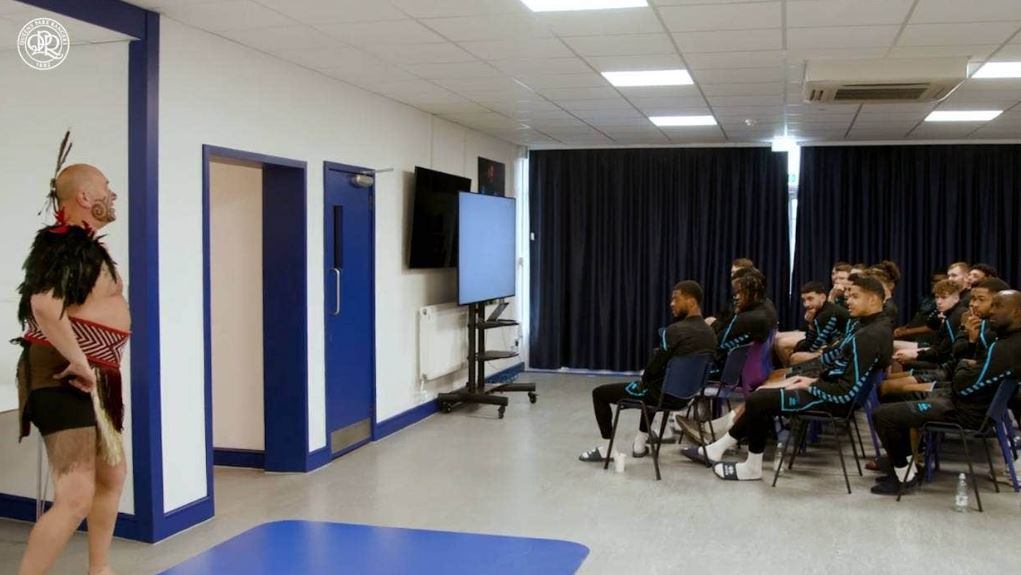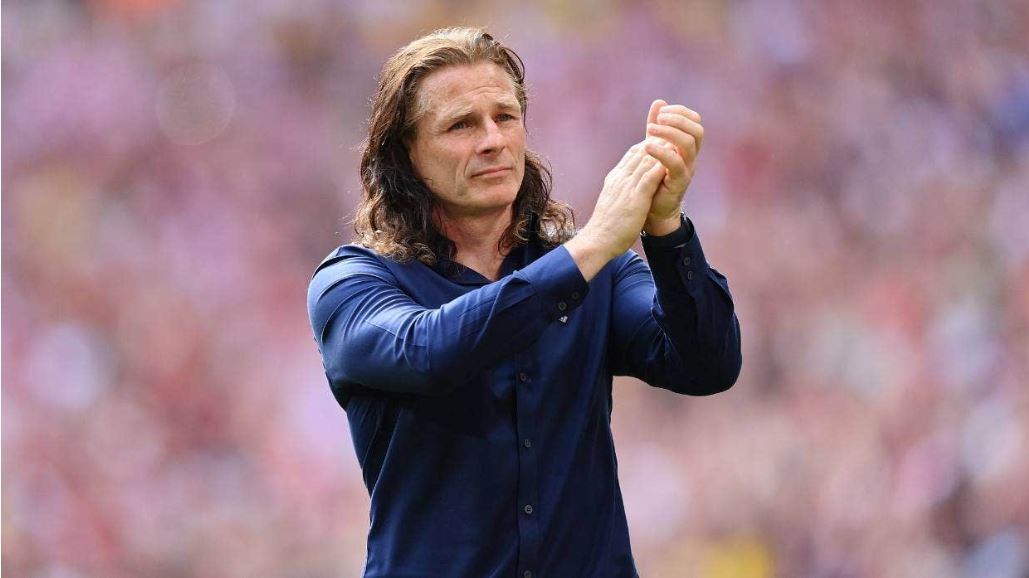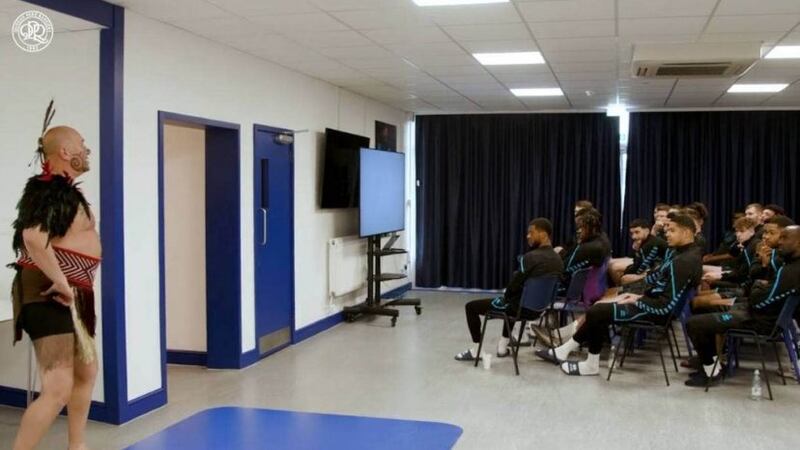Source: QPR FC/YouTube
By Stuff
Queen’s Park Rangers’ new manager Gareth Ainsworth has introduced a Māori culture and haka training session to help promote team togetherness in the London club’s drive to survive in English football’s second tier.
Ainsworth, a former QPR player, became known for his innovations during a decade in charge at his previous club Wycombe Wanderers.
The 49-year-old, dubbed ‘Wild Thing’ in his playing days, has sung in a rock band called Cold Blooded Hearts in his downtime.
Ainsworth introduced his Wycombe players to Māori culture several seasons ago and has now done the same at QPR.
Bruce Simpson, who runs the Haka Rebuilding Company in London, came in to QPR’s training centre in west London last week to talk to the first-team squad about “unity – kotahitanga” and explain the philosophy behind the haka.
“A large amount of people see the haka as an All Blacks and rugby thing,’’ he said on a YouTube video released by QPR FC.
“It’s my job to make sure people see it’s not, that it’s more than about rugby. It’s about a culture that survives today, which stands strong ...’’
Simpson, whose iwi affiliations include Ngāti Toa, Ngāti Tūwharetoa, Ngāti Raukawa and Muaūpoko, told the QPR group that Māori culture was about “coming together as people’’ and emphasising values such as “strength and dignity. And, more importantly, unity, kotahitanga, is a big part of our tribal kaupapa, our reason for doing things.
“It’s just being there for each other and being part of a bigger group, not just yourself but everyone around you.’’
Ainsworth said on the video that he had “brought an authentic Māori into the building to talk about culture’’. He and his staff had studied culture and found “one of the best cultures is the Māori culture’’.

Screenshot/QPR FC/YouTube
Ainsworth spoke about the haka’s connection to sport and the All Blacks and said “Bruce has gone into detail about what it actually means’’.
“It’s not just about sport performances, but about the mental side, the inner side of who you are as a person.
“He talked about the All Blacks and obviously the connection with how they’ve dominated the world of rugby union for so long with just a five million people island, and that didn’t start happening till the haka got introduced.
“When he talked about what the haka means, I think some of the boys really got an education today.’’

Gareth Ainsworth, pictured while coaching Wycombe in the League One promotion playoff final, is now in charge of Championship strugglers Queen’s Park Rangers. Photo: Justin Setterfield / Getty Images
Ainsworth said it was “a powerful moment at the end’’ when the players and staff – guided by Simpson – performed a haka in the gym.”
He hoped it would help “bring the boys together’’.
“Bruce talks about chiefs a lot, the inner chiefs, and bringing out chiefs in everybody.’’
He hoped the players could take that philosophy into games.
“I want them all to be out there and feeling like a chief, or a leader on the pitch.’’
Senior QPR forward Chris Martin, a former Scottish international, said the culture session was valued by the players.
“Some people might say ‘what are they are doing that for? They should be doing more on the training pitch’, but these kind of things can be really invaluable. I don’t think you can put an exact measurement on how much people will get out of it.’’
Martin said it was good to get the group “understanding each other a bit more and being a bit more vulnerable and open to each other’’.
“I think that can only help build the right culture here.’’
QPR started the season expected to challenge for the Premier League playoffs, but a severe form slump has seen them slide down to 20th place on the 24-team ladder.
Ainsworth is their third manager of the season after Michael Beale left for Glasgow Rangers in November and his replacement, Neil Critchley, was sacked.
QPR lost their latest game, 1-0 at Rotherham, on Saturday (Sunday NZT).

